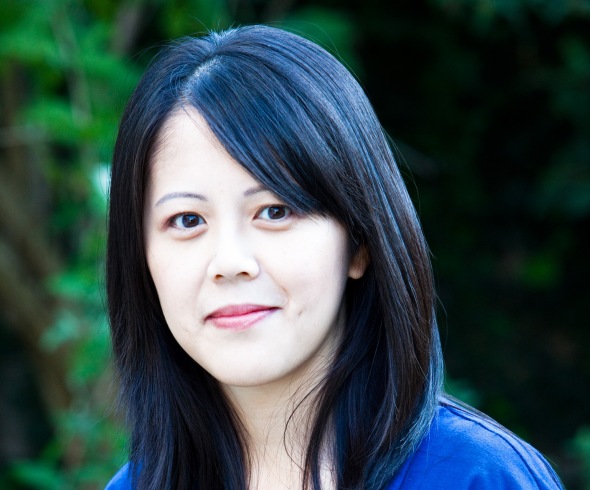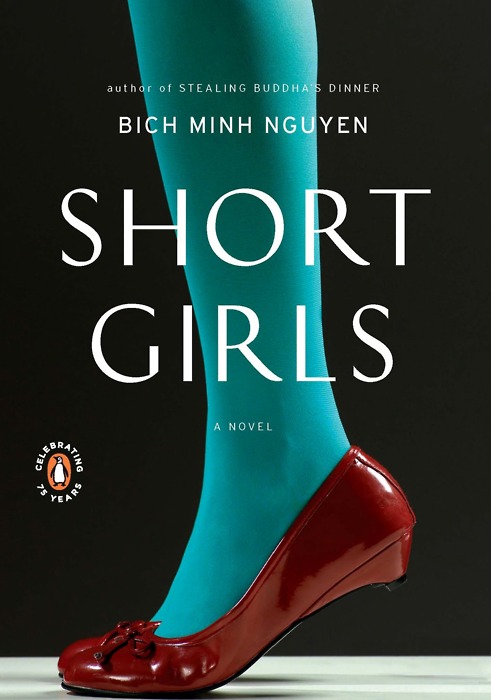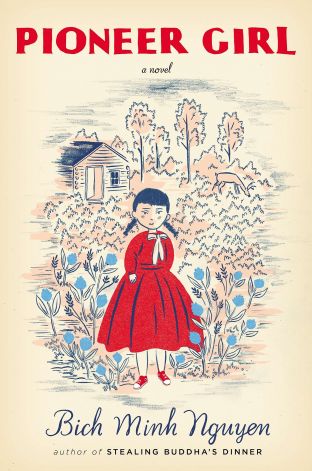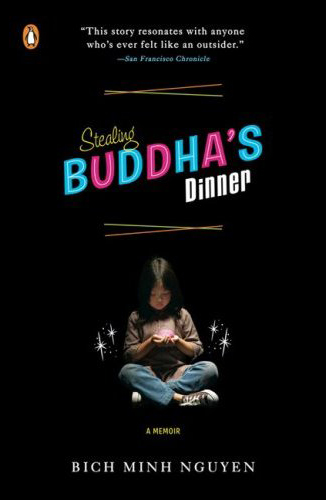The Diasporic Vietnamese Artists Network and the Asian Pacific Islander Cultural Center are proud to present the Fourth San Francisco Diasporic Vietnamese Literary Festival on Saturday, April 19, 2014 at the African American Art and Culture Complex (762 Fulton St, SF.)
In the approaching weeks, we will highlight our writers and artists with a Q&A and a tantalizing taste of their work. We hope you will enjoy getting to know our fabulous roster of writers and artists, and join us in celebrating their work in April!
Have you subscribed to diaCRITICS yet? Subscribe and win prizes! Read more details.
Our first spotlight is award winning author Bich Minh Nguyen (who also goes by Beth) and recently published her novel Pioneer Girl by Viking. She is also the author of the novel Short Girls, which received an American Book Award, and the memoir Stealing Buddha’s Dinner, which received the PEN/Jerard Award. Her work has been included in numerous anthologies, The New York Times, the Chicago Tribune, and other publications. She teaches in and directs the MFA in Writing Program at the University of San Francisco.
Q&A
1. How important is community and location to your identity as a writer and your writing process?
I grew up in a town in the Midwest where I often felt isolated and out of place; probably as a result, location is a significant part of my identity as a writer. I always return to characters who aren’t sure about where they are or where they belong. In terms of community, I’ve always found it through books, writers, writing programs–wherever people care about words.
2. Which three books have you read more than three times?
I love rereading; it’s like comfort food to me. Among the most-read would be: The Age of Innocence by Edith Wharton, Madame Bovary by Gustave Flaubert, and Sense and Sensibility by Jane Austen.
3. Who would you be if you had not become a writer?
If I had not become a writer, I might have gone into a food-related field.
4. Do you have any advice for aspiring writers and poets?
My advice for aspiring writers and poets is to read and write in equal measure. And once you’re writing, stay there as long as possible.
Excerpt from Stealing Buddha’s Dinner (Viking 2007)
We arrived in Grand Rapids with five dollars and a knapsack of clothes. Mr. Heidenga, our sponsor, set us up with a rental house, some groceries—boxed rice, egg noodles, cans of green beans—and gave us dresses his daughters had outgrown. He hired my father to work a filling machine at North American Feather, one of his factories. Mr. Heidenga wore wide sport coats and had yellow hair. My sister and I were taught to say his name in a hushed tone to show respect. But if he stopped by to check on us my grandmother would tell us to be silent because that was part of being good. Hello girls, he would say, stooping to pat us on the head.
It was July 1975, but we were cold. Always cold, after Vietnam, and my uncle Chu Cuong rashly spent two family dollars on a jacket from the Salvation Army, earning my grandmother’s scorn. For there were seven of us to feed in that gray house on Baldwin Street: my father, grandmother Noi, uncles Chu Cuong, Chu Anh, and Chu Dai, and my sister and me. Upstairs belonged to the uncles, and downstairs my sister and I shared a room with Noi. My father did not know how to sleep through the night. He paced around the house, double-checking the lock on the front door; he glanced sideways out the taped-up windows, in case someone was watching from the street. When at last he settled down on the living room sofa, a tweedy green relic from Mr. Heidenga’s basement, he kept one hand on the sword he had bought from a pawn shop with his second paycheck. In the daylight my father showed my sister and me the spiral carvings on the handle. He turned the sword slowly, its dull metal almost gleaming, and let us feel the weight of the blade.
On Baldwin Street all of the houses were porched and lopsided, missing slats and posts like teeth knocked out of a sad face. Great heaps of rusted cars lined the curbs, along with beer bottles that sparkled in any hint of sunlight. I spent a lot of time staring at the street, waiting for something to happen or someone to appear. Chu Anh got a job working second shift at a tool and die plant, and sometimes he and my father would meet each other on the street, coming and going from the bus stop.
My sister was also named Anh, but with an accent no one pronounces anymore. A year older than I, she was the ruler of all our toys. We amassed a closet full of them, thanks to the bins at our sponsor’s church. We had so much, we became reckless. We threw Slinkies until they tangled and drowned paper dolls. Someone gave us tricycles and we traveled the house relentlessly, forgetting our uncles sleeping upstairs. We didn’t know that they had to get up in the middle of the night, or that our father competed for pillows and comforters from the reject pile at work. We didn’t know that we were among the lucky.
[amazon_enhanced asin=”0143113038″ /][amazon_enhanced asin=”B00C474BFM” /][amazon_enhanced asin=”0670025097″ /][amazon_enhanced asin=”0143113038″ /][amazon_enhanced asin=”B00C474BFM” /]
–
Do you enjoy reading diaCRITICS? Then please consider subscribing! See the options to the right, via feedburner, email, and networked blogs.
Please take the time to rate this post (above) and share it (below). Ratings for top posts are listed on the sidebar. Sharing (on email, Facebook, etc.) helps spread the word about diaCRITICS. And join the conversation and leave a comment! Have you read any of Bich Minh Nguyen’s books? If so, tell us what you think!







